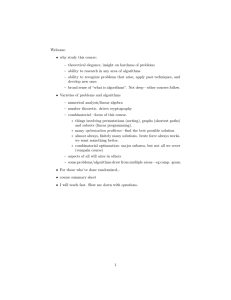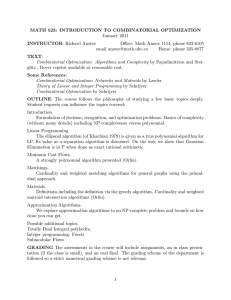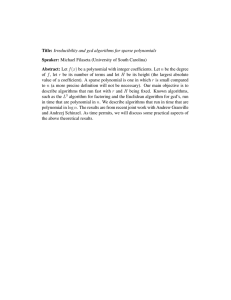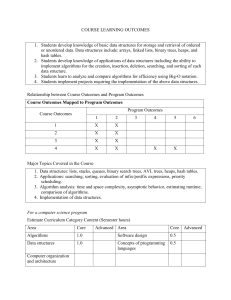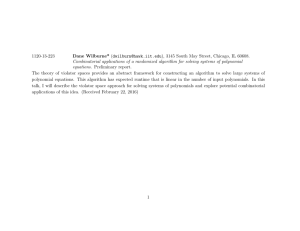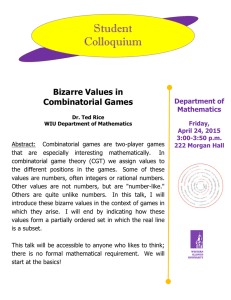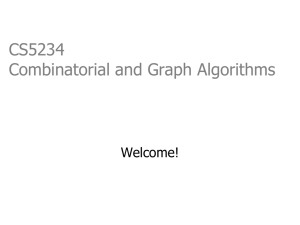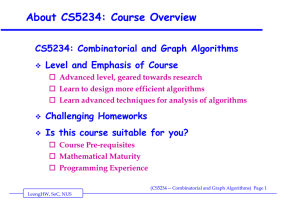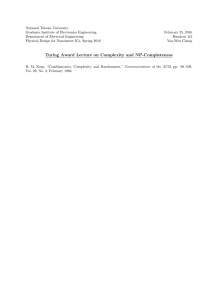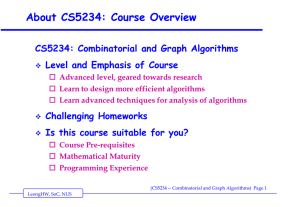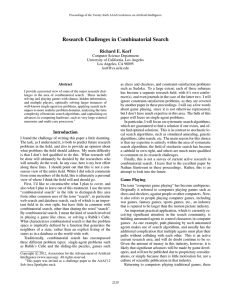3502 (Combinatorial Optimisation)
advertisement
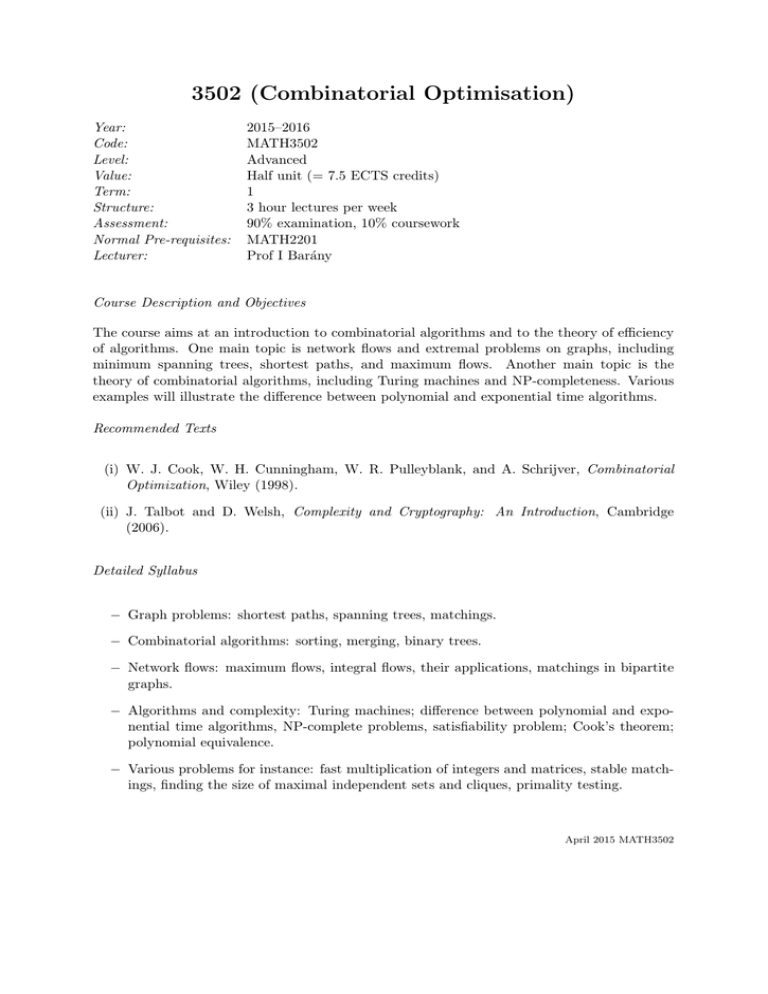
3502 (Combinatorial Optimisation) Year: Code: Level: Value: Term: Structure: Assessment: Normal Pre-requisites: Lecturer: 2015–2016 MATH3502 Advanced Half unit (= 7.5 ECTS credits) 1 3 hour lectures per week 90% examination, 10% coursework MATH2201 Prof I Barány Course Description and Objectives The course aims at an introduction to combinatorial algorithms and to the theory of efficiency of algorithms. One main topic is network flows and extremal problems on graphs, including minimum spanning trees, shortest paths, and maximum flows. Another main topic is the theory of combinatorial algorithms, including Turing machines and NP-completeness. Various examples will illustrate the difference between polynomial and exponential time algorithms. Recommended Texts (i) W. J. Cook, W. H. Cunningham, W. R. Pulleyblank, and A. Schrijver, Combinatorial Optimization, Wiley (1998). (ii) J. Talbot and D. Welsh, Complexity and Cryptography: An Introduction, Cambridge (2006). Detailed Syllabus − Graph problems: shortest paths, spanning trees, matchings. − Combinatorial algorithms: sorting, merging, binary trees. − Network flows: maximum flows, integral flows, their applications, matchings in bipartite graphs. − Algorithms and complexity: Turing machines; difference between polynomial and exponential time algorithms, NP-complete problems, satisfiability problem; Cook’s theorem; polynomial equivalence. − Various problems for instance: fast multiplication of integers and matrices, stable matchings, finding the size of maximal independent sets and cliques, primality testing. April 2015 MATH3502
